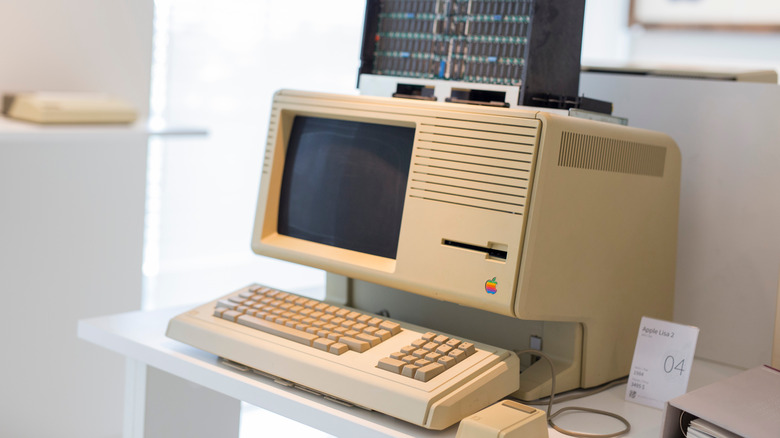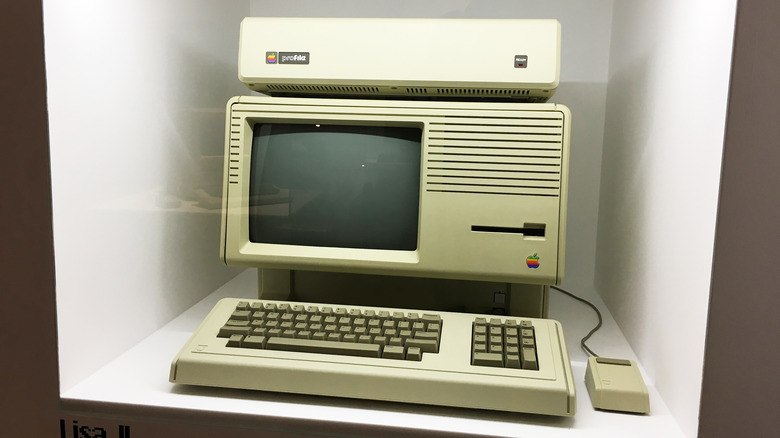The Reason Why The Apple Lisa Computer Failed
Apple and the Macintosh may go hand-in-hand, but there was another computer before the Mac that helped pave the way for the now-iconic computer brand. This early model broke new ground in the technological universe — all while being a commercial failure. The Apple Lisa is nearly a forgotten chapter in Apple's history, an innovative machine that introduced a number of firsts for the company and the tech industry at large. Released in 1983, Mac History notes that development on the Apple Lisa started in 1978. "Lisa" stood for "Local Integrated Software Architecture." Either by design or coincidence, depending on who you ask, Lisa is also the name of Steve Jobs' oldest daughter.
The Lisa was the first personal computer to have two major features that virtually everyone takes for granted today: a graphical user interface (GUI) and a mouse. Prior to the Lisa, machines relied on text-based interfaces and keyboard input, making the Lisa a remarkable step forward in the evolution of the modern PC. Apple clearly saw the Lisa as the successor to the Apple II, but, despite the company's best efforts, it only sold roughly 100,000 units. Despite the Lisa's accomplishments, it was one of Apple's first major failures. A look at the reason why sheds light on the company Apple is today.
History Of The Apple Lisa
There were a number of reasons why the Lisa failed, but the largest reason was its price: $9,995 (via Mac History). The Lisa's price would be expensive for a modern PC, but it's important to remember that, when factoring in inflation, the Lisa's $9,995 price tag is the equivalent of $27,978.17 in 2022 (via CIP Inflation Calculator). The cost was simply too expensive for the average household, putting it within reach of only the wealthiest.
In fact, not only did Jobs directly tie the Lisa's failure to its price, but he also indicated Apple had temporarily lost its way with the project. "First of all, it was too expensive — about ten grand," Steve Jobs said in an interview with Playboy in 1985 (via CNBC). "We had gotten Fortune 500-itis, trying to sell to those huge corporations, when our roots were selling to people."
Apple never again lost focus on its roots as a primarily consumer-oriented company, according to Digital Information World. To a lesser extent, the Lisa also fell victim to Apple's internal politics. As a result of Steve Jobs' mercurial nature, he was kicked off the Lisa project in 1980 (via Cult of Mac). Given Jobs' almost maniacal focus on the consumer, it's possible he could have helped the project stay true to Apple's roots if he had stayed on. Instead, Jobs looked for something new and quickly began developing what would be known as the Macintosh.
The rest, as they say, is history.

